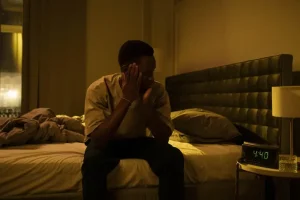
When it comes to mental health, the line between different conditions can sometimes feel blurry, especially between Major Depressive Disorder (MDD) and Bipolar Disorder (BD). Both conditions share overlapping symptoms like low mood, fatigue, and changes in sleep or appetite.
However, understanding the difference between unipolar depression and bipolar is crucial, not just for diagnosis, but for treatment and long-term well-being.
Let’s unpack this complex relationship and explore why MDD vs BD overlapping symptoms often lead to confusion, even for trained professionals.
Major Depressive Disorder vs Bipolar Disorder: What’s the Difference?
The simplest way to explain it is this: Major Depressive Disorder (also known as unipolar depression) involves episodes of persistent sadness, hopelessness, and lack of interest in life, without the highs of mania or hypomania.
In contrast, Bipolar Disorder includes both depressive episodes and periods of elevated or irritable mood (mania or hypomania). These highs can range from bursts of energy and rapid speech to risky decision-making or even delusions in severe cases.
So, is major depressive disorder the same as bipolar?
No, they are not the same, though they can look very similar during depressive phases.
Bipolar vs Unipolar Depression Diagnosis: Why It’s Tricky
During the depressive phase of Bipolar I or Bipolar II, symptoms closely mimic those of Major Depressive Disorder. A person might feel deeply sad, withdrawn, and overwhelmed by everyday tasks.
But unless a past or future manic/hypomanic episode is identified, the diagnosis may remain MDD, leading to potential misdiagnosis of bipolar as depression.
In fact, it’s not uncommon for individuals with bipolar disorder to be initially diagnosed with depression, especially if their manic episodes haven’t yet occurred, or went unnoticed.
Symptoms of Bipolar Depression vs Major Depression: The Nuances
While both disorders can involve hopelessness, fatigue, and social withdrawal, there are certain signs bipolar disorder not depression that may raise red flags:
- Mood swings in bipolar vs depression: Bipolar depression often comes with sudden mood shifts that don’t align with circumstances. You might feel fine in the morning and deeply down by evening, or vice versa.
- Atypical features: Bipolar depression is more likely to involve hypersomnia (sleeping too much), increased appetite, and mood reactivity.
- Psychomotor changes: In bipolar depression, there may be noticeable slowing or agitation in movement and speech.
- Family history of bipolar disorder: A strong genetic component may exist.
These subtle distinctions can help a trained clinician differentiate the two, but it’s not always straightforward, especially in early stages.
Can Depression Turn into Bipolar Disorder?
It’s a common question: Can someone with major depression later be diagnosed with bipolar disorder?
Yes, it’s possible.
Many individuals who are initially diagnosed with MDD may later experience a manic or hypomanic episode, leading to a revised diagnosis of bipolar disorder. This transition may occur months or even years after the initial depression diagnosis.
That’s why it’s important to keep monitoring symptoms over time, and to have open, ongoing conversations with your mental health provider.
What Are Mixed Features in Major Depressive Disorder?
One of the most confusing presentations is mixed features major depressive disorder, when someone shows signs of depression with a few symptoms of mania or hypomania, though not enough to qualify for bipolar diagnosis.
For example, someone might feel overwhelmingly sad but also have racing thoughts, irritability, or restlessness. These mixed features are clinically recognized and can complicate the diagnosis further.
They may also signal a higher risk of developing bipolar disorder down the line, so they’re worth paying attention to.
Is Antidepressant-Only Treatment Risky if Underlying Bipolar Is Missed?
In short: yes.
If a person with bipolar disorder is treated with antidepressants alone, there’s a risk of triggering a manic or hypomanic episode.
This is one reason why mental health professionals are cautious about prescribing antidepressants without first ruling out a history (or family history) of bipolar symptoms.
A thoughtful, individualized approach is key, and may involve mood stabilizers or antipsychotic medications if bipolar disorder is suspected or confirmed.
Can Brain Imaging or Blood Tests Help Differentiate MDD from Bipolar?
Unfortunately, there’s no single blood test or brain scan that can definitively tell you whether someone has MDD or bipolar disorder.
Diagnosis remains clinical, based on a detailed personal and family history, interviews, symptom tracking, and sometimes psychological testing.
However, ongoing research into biomarkers, neuroimaging, and genetics is promising, and may offer more diagnostic clarity in the future.
Why the Right Diagnosis Matters
Treating major depression as if it were bipolar disorder (or vice versa) can lead to ineffective or even harmful results. That’s why identifying the difference between unipolar depression and bipolar isn’t just academic, it’s life-changing.
If you or someone you know has experienced depression that doesn’t respond to treatment, or seems to include unusual symptoms like bursts of energy or impulsivity, it’s worth revisiting the diagnosis with a mental health professional.
At Excel Psychiatry, we specialize in understanding the complex presentations of mood disorders. With careful evaluation and ongoing support, we work to ensure that every patient receives the right diagnosis, and the most appropriate, effective care.
FAQs
Can someone with major depression later be diagnosed with bipolar disorder?
Yes. Many individuals first experience depression, and only later show signs of mania or hypomania — leading to a bipolar diagnosis.
What are “mixed features” in major depressive disorder?
These are depressive episodes with some symptoms of mania or hypomania (like racing thoughts or irritability), but not enough to qualify for bipolar disorder.
What symptoms suggest bipolar rather than just major depressive disorder?
Rapid mood changes, a family history of bipolar, atypical depression features, or manic-like symptoms such as impulsivity and grandiosity may point to bipolar disorder.
Is antidepressant-only treatment risky if underlying bipolar is missed?
Yes. Antidepressants alone can sometimes trigger manic episodes in people with undiagnosed bipolar disorder.
Can brain imaging or blood tests help differentiate MDD from bipolar?
Not yet, but research is ongoing. For now, diagnosis is based on clinical evaluation, history, and symptom patterns.
Final Thoughts
Understanding MDD vs BD overlapping symptoms can be tricky, even for professionals. But with time, patience, and proper evaluation, the right diagnosis, and the right treatment, can be found.
Medical Disclaimer:
This article is for informational purposes only and is not a substitute for professional medical advice, diagnosis, or treatment. Always seek advice from your psychiatrist or a qualified healthcare provider regarding any medical condition or mental health concern.




